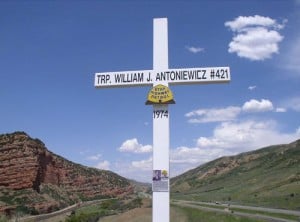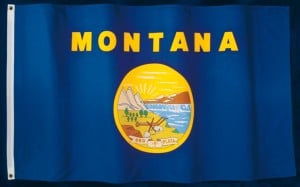
It is disappointing that the Supreme Court failed to take a very important case out of Utah – a case involving the placement of crosses along Utah highways to commemorate the death of Utah Highway Patrol officers and a reminder to urge motorists to drive safely.
This is a case that we’ve been involved in for quite some time. And it’s the kind of issue we discuss regularly.
A federal appeals court determined these highway crosses were unconstitutional. The case was appealed to the U.S. Supreme Court and in May we filed an amicus brief in the case of Davenport v. American Atheists asking the high court to take the case.
Unfortunately, the Justices declined to take the case and the lower court decision – banning the placement of these commemorative crosses – remains in place.
The Supreme Court missed a critical opportunity by refusing to hear this case. As Justice Clarence Thomas wrote in a 19-page dissent, he said the court had rejected “an opportunity to provide clarity to an establishment-clause jurisprudence in shambles.”
Justice Thomas, who was the sole Justice in favor of hearing the case, said the high court’s own history with religious displays in public has “confounded the lower courts and rendered the constitutionality of displays of religious imagery on government property anyone’s guess.”
Justice Thomas’s disappointment was clear: “It is difficult to imagine an area of law more in need of clarity,” he wrote. “Respondents tell us there is no reason to think that a case with facts similar to this one will recur…but if that counsels against certiorari here, this Court will never again hear another case involving an Establishment Clause challenge to a religious display. It is this Court’s precedent that has rendered even the most minute aesthetic details of a religious display relevant to the constitutional question. We should not now abdicate our responsibility to clean up our mess because these disputes, by our own making, are ‘factbound.'”
As Justice Thomas concluded: “This suit… is as ripe a suit for certiorari as any.”
We agree.
The mere existence of a religious symbol in a public place need not trigger a constitutional crisis. The Supreme Court recently noted that the Constitution does not prohibit, but rather accommodates such symbols.
In our amicus brief filed with the high court backing a Petition for a Writ of Certiorari, we contended the Utah crosses are constitutional and reflect what the high court decided in April 2010.
As you may recall, in the case of Salazar, Secretary of the Interior, et al., v. Buono, (08-472), the Supreme Court ruled that a World War I memorial in California’s Mojave Desert that features a memorial cross can remain in place. A plurality opinion by Justice Anthony Kennedy observed: “A cross by the side of a public highway marking, for instance, the place where a state trooper perished need not be taken as a statement of governmental support for sectarian beliefs. The Constitution does not oblige government to avoid any public acknowledgment of religion’s role in society. . . . Rather, it leaves room to accommodate divergent values within a constitutionally permissible framework.”
By refusing to engage the Utah roadside cross case, it is hard to disagree with Justice Thomas’s assessment that there will be more questions than answers when it comes to clarifying the law regarding religious displays.
As an attorney who has argued 12 cases before the high court, I’m afraid we’re likely to see much more constitutional confusion ahead in this area of First Amendment law. Yes, it’s true that the Supreme Court doesn’t take many new cases, but this is one the Justices should have agreed to hear.

